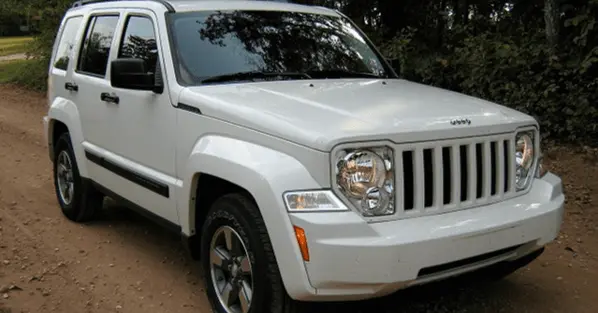How Long Does a Jeep Liberty Last: Discover the Surprising Lifespan of the SUV
While a Jeep Liberty can last up to 250,000 miles and can be extendent 300000 sometimes with proper maintenance. The longevity of a vehicle is often a major factor when shopping for a new or used car.
So, how long does Jeep Liberty last? The Jeep Liberty can last up to 250,000 miles with consistent and appropriate maintenance. However, this does depend on several factors, such as driving habits, road conditions, and regular care. This four-door SUV is known for its off-road capability and durability, making it a great choice for those who frequently take their vehicle on adventures.
In this article, I will guide you about how long this specialized SUV lasts. Regular oil changes, tire rotations, tune-ups, and other routine maintenance can help extend the life of this four-door Jeep SUV.
What Is The Jeep Liberty?
Brief Overview Of Jeep Liberty And Its History
The Jeep Liberty, also known as the Jeep Cherokee in some countries, is a compact SUV manufactured by Jeep. It was first introduced in 2001 and was produced until 2012. It underwent significant changes, upgrades, and redesigns to keep up with the competition during its production period.
Here are some key facts about the Jeep Liberty’s history:
- Jeep developed the liberty to replace the Cherokee in the North American market. However, the Cherokee nameplate was still used in Europe and other regions.
- The first-generation Liberty (2001-2007) received mixed reviews, but it sold well thanks to its Jeep brand heritage, off-road capabilities, and affordable price.
- The second-generation Liberty (2008-2012) was a more refined and modern SUV with improved on-road performance, better fuel economy, and more safety features.
The Jeep Liberty is a compact SUV that offers a combination of off-road ability, practicality, and comfort that many other small SUVs lack. Here are some key features of the SUV:
Body style:
- This four-door SUV features a rugged unibody construction, seamlessly integrating the body and frame for enhanced strength and handling.
- With its four-door practicality and unibody design, this SUV offers both convenience and durability.
Powertrain:
- This versatile SUV is available in both rear-wheel drive and four-wheel drive variants, making it an ideal choice for diverse driving conditions.
- Take your pick between the fuel-efficient four-cylinder powertrain or the robust V6 option, depending on your performance needs.
Towing capacity:
- Boasting a 5,000-pound towing capacity, this SUV is adept at tackling your recreational activities, whether it’s camping, boating, or off-road adventures.
- Get ready for weekend escapes and outdoor pursuits with this SUV’s impressive 5,000-pound towing capability.
Safety features:
- Stay confident on the road with this SUV’s comprehensive safety package, including standard anti-lock brakes, stability control, and airbags, and optional enhancements like rear parking sensors and a rearview camera for added peace of mind.
- Drive with trust thanks to this SUV’s standard safety features like anti-lock brakes, stability control, and airbags, further upgradeable with optional elements like rear parking sensors and a rearview camera.
Interior space:
- Comfortably accommodate four passengers with ample cargo space in this versatile SUV.
- Enjoy the convenience of a four-door layout and generous cargo capacity in this SUV, with foldable rear seats for even more room when needed.
The jeep liberty is a versatile and practical SUV that offers a rugged, capable off-road performance and a comfortable on-road driving experience. Its history spans over a decade, featuring significant changes and upgrades to meet market demands and consumer preferences.
The Surprising Lifespan
You’re not alone if you’re wondering how long a jeep liberty lasts. These four-door SUV is a popular compact SUV on the road since 2002. In this post, we’ll dive into the average lifespan of a jeep’s liberty, factors that may affect its longevity, and maintenance tips to extend its lifespan.
The Average Lifespan Of A Jeep Liberty
The average lifespan of this SUV is around 200,000 miles. However, with proper maintenance, some owners have reported their vehicles lasting around 300,000 miles, sometimes even more. The key to extending the lifespan of jeep liberty is taking good care of it and keeping up with regular maintenance.
Factors That May Affect The Lifespan Of A Jeep Liberty
Several factors may affect the lifespan of these SUV, including:
- Driving habits: Aggressive driving and extreme off-roading can strain the engine and suspension, shortening the vehicle’s lifespan.
- Climate and environment: Exposure to extreme temperatures, harsh weather conditions, and salt used on the roads during winter can accelerate wear and tear on the exterior and interior of the vehicle.
- Maintenance: Neglecting regular oil changes, tire rotations, and other maintenance tasks can cause damage to the engine, transmission, and other components, leading to a shorter lifespan.
- Quality of parts and repairs: Using cheap or low-quality parts and repairs can lead to more frequent breakdowns and a shorter lifespan.
Maintenance Tips To Extend The Lifespan Of Your Jeep Liberty
If you want to extend the lifespan of your Jeep SUV, follow these maintenance tips:
- Keep up with regular maintenance: Follow the manufacturer’s recommended maintenance schedule, including oil changes, tire rotations, and other tasks.
- Use high-quality parts and repairs: Don’t skimp on parts and repairs. Opt for high-quality OEM parts and certified repairs from a reputable mechanic.
- Drive responsibly: Avoid aggressive driving and extreme off-roading that can strain the engine and suspension.
- Protect your jeep’s liberty from the weather: Park it in a covered area or garage to protect it from harsh weather conditions, especially during winter.
- Clean your jeep liberty regularly: Regularly washing and detailing your jeep liberty can prevent rust and other damage to the exterior.
How Do Jeep Liberties Compare To Other Cars In Terms Of Lifespan?
Compared to other cars, jeep liberties have a relatively long lifespan. Some Jeep liberty owners have reported their vehicles lasting up to 400,000 miles or more with proper maintenance. However, it’s important to note that the lifespan of any car depends on several factors, including driving habits, maintenance, and the environment it’s driven in.
The lifespan of this perticuler Jeep SUVs can be surprising, thanks to its durability and reliability. By taking good care of your jeep liberty and following a regular maintenance schedule, you can enjoy the benefits of driving it for many years.
Jeep Liberty Milestones: What You Need To Know
The Jeep Liberty is an iconic SUV renowned for its longevity; it can last for years with proper maintenance. If you’re considering buying a Jeep Liberty, knowing what to expect at every stage of ownership is essential.
The Difference Between A New And Used Jeep Liberty
Whether you’re considering purchasing a new or used Jeep Liberty, it’s important to be aware of the differences in quality, cost, and safety. Here are the key points to consider:
- New Jeep liberties come with a manufacturer’s warranty, which provides coverage for various parts of the vehicle
- Purchasing a used Jeep Liberty can save you money, but it’s crucial to have it inspected by a mechanic before purchasing it to avoid any hidden problems.
- Used Jeep Liberties may have experienced more wear and tear, but their previous owners may have already taken care of any necessary repairs.
Milestones To Be Aware Of Throughout The Life Of Your Jeep Liberty
Jeep liberties have a lifespan of around 200,000 miles, but milestones such as regular maintenance, inspection, and tune-ups are crucial to ensure its longevity.
- Every 5000 miles, your Jeep Liberty needs an oil change, and other fluids such as brake and power steering should be inspected
- At 60,000 miles, have the brakes checked, and replace the brake fluid and coolant
- At 100,000 miles, check the transmission fluid and replace the spark plugs and engine belt
- At 150,000 miles, inspect and replace the suspension components as needed
Signs That Your Jeep Liberty Requires Maintenance
It’s essential to keep an eye out for any noticeable changes to your jeep liberty’s performance as it ages. The following are some warning signs that your vehicle requires maintenance or repairs:
- Engine warning light illuminates
- Unusual noises coming from the engine
- Odd smells coming from the car
- Difficulty braking or stopping
- Sudden changes in gas mileage
- Difficulty starting or stalling
If you own a Jeep Liberty or wish to purchase one, understanding the milestones throughout its life is crucial. The above information will help you properly maintain your Jeep liberty to ensure it lasts for years to come.
Maintenance For A Long And Healthy Life
Importance Of Regular Maintenance
Regular maintenance is crucial in extending the lifespan of your jeep liberty. It ensures that your vehicle runs efficiently, improves its safety, and saves you money in the long run. Here are the key points to keep in mind:
- Regular oil changes are essential to keep your engine running smoothly. It helps lubricate the engine’s moving parts and reduce friction, extending its lifespan.
- The air filter should be replaced regularly to allow clean air into the engine, which helps it operate efficiently.
- Maintaining your brakes properly can improve their performance and prevent costly repairs or replacements.
- Regular tire rotations and alignments improve fuel efficiency, prolong tire life, and ensure your vehicle handles reliably.
Common Problems With Jeep Liberty And Their Solutions
When it comes to Jeep Liberty, there are a few common problems that you may face. Here’s what you need to do to prevent and solve common issues:
- Electrical problems can arise due to poor wiring or dead batteries. Regular testing can ensure that any problems are caught early.
- Suspension problems can cause a bumpy ride and reduced control over your vehicle. Regular inspections can catch problems before they turn serious.
- Leaks of oil, coolant, or transmission fluid should be addressed immediately to avoid damage to your vehicle’s components.
- Rust can occur on the chassis if your Jeep Liberty is kept in adverse environments. Regular cleaning can keep it at bay.
Routine Maintenance Checks And Servicing Milestones
Staying on top of routine maintenance checks and servicing milestones can keep your Jeep Liberty running at its best. Here’s what you can do:
- Every 3,000 miles, replace your engine oil and filter to ensure optimal engine performance.
- Every 30,000 miles, replace spark plugs and wires for optimal engine combustion.
- Every 60,000 miles, replace the gearbox oil, coolant, and drive belts for smooth operation.
- Every 100,000 miles, regularly check and replace your timing belt to prevent engine damage.
By following these guidelines, performing regular maintenance checks, and addressing problems promptly, your jeep liberty can last for years to come.
Upgrade Or Replacement?
Jeep Liberty is a popular compact SUV designed by Chrysler, renowned for durability and reliability. The longevity of any vehicle depends on various factors, including the quality of the vehicle, driver’s care and maintenance, and driving habits. This blog post will explore the key factors you should consider before deciding whether to upgrade or replace your Jeep Liberty.
Should You Upgrade Or Replace Your Jeep Liberty?
If you are pondering whether to upgrade or replace your Jeep Liberty, the first step is to consider your vehicle’s condition and age. However, assessing your current needs and determining if your Jeep Liberty still fulfills your requirements is also crucial.
Factors to consider before making a decision:
Mileage:
- Instead of focusing solely on mileage, consider phrasing it as: “Generally, a Jeep Liberty with low mileage and meticulous maintenance (under 100,000 miles) might be a candidate for upgrading rather than replacing.”
- Add nuance: Mention that high mileage doesn’t automatically disqualify upgrading, but factor in maintenance records and overall condition.
Maintenance and repair costs:
- Instead of using a fixed threshold, rephrase it as: “As repair costs start to approach or exceed the Jeep Liberty’s value, consider replacing it.”
- Offer alternatives: Suggest that significant repairs could still justify an upgrade if they address crucial issues and improve the vehicle’s safety or performance.
Safety features:
- Expand on crucial features: Instead of just listing a few examples, mention specific safety technologies that have significantly improved over the years, like adaptive cruise control or blind-spot monitoring.
- Highlight the safety upgrade as an investment: Frame it as enhancing peace of mind and potentially saving lives.
Resale value:
- Go beyond popularity: While newer models might have higher resale potential, mention factors like specific trim levels, fuel efficiency, and demand in your local market.
- Offer a broader perspective: Briefly explain that even if the resale value of an upgrade is higher, the cost difference and future depreciation should also be considered.
How to determine the appropriate time to upgrade or replace:
- Assess your needs: Assess your current needs and determine whether your jeep liberty meets these requirements. For instance, a larger vehicle may be more practical if you have a growing family.
- Research: Research different models and compare their features and prices. This will give you a better idea of what options are available within your budget.
- Consult with a trusted mechanic: If you are unsure about the condition of your jeep liberty, consult with a trusted mechanic. They can assess the vehicle’s condition and give you an accurate estimate of the repair costs.
- Consider your budget: Your budget is another critical factor to consider. If you can afford a newer model, ensure that it meets your needs and is within your budget.
Deciding whether to upgrade or replace your jeep liberty requires careful consideration of various factors, including mileage, maintenance and repair costs, safety features, and resale value. Assessing your needs and determining your budget will also help you make an informed decision.
Frequently Asked Questions:
How Long Does A Jeep Liberty Last On Average?
Proper maintenance means it can last up to 250,000 miles or 10-15 years.
What Are Common Jeep Liberty Maintenance Issues?
The most common maintenance issues with this SUV include suspension problems, oil leaks, and electrical system failures.
How Reliable Is A Jeep Liberty 4X4 System?
The jeep liberty 4×4 system is highly reliable and can provide excellent off-road performance in various terrains and weather conditions.
How Does The Jeep Liberty Perform In Terms Of Fuel Economy?
The fuel economy is average, getting around 16-22 miles per gallon in the city and 22-28 miles per gallon on the highway.
Is It Worth Buying A Used Jeep Liberty?
Purchasing a used jeep liberty can be a good investment, as long as it has been well-maintained and has low mileage. However, do your research to ensure it’s a good fit for your needs.
Conclusion
The jeep liberty has proven to be a reliable vehicle for many drivers. Although there is no specific lifespan for this suv, owners can expect to drive it for at least a decade or more with proper maintenance, making it stay on the road for a long time.
Performing routine maintenance and addressing any issues immediately can significantly extend the lifespan of the jeep liberty. Regular servicing, such as oil changes, tire rotations, and brake inspections, can also help prevent major repairs and expenses down the line. Drivers can also make upgrades and modifications to keep their jeep liberty running smoothly and looking sharp.
In sum, owning a jeep liberty is a great investment, and taking care of it can result in a vehicle that can last well beyond its 10-year mark.




